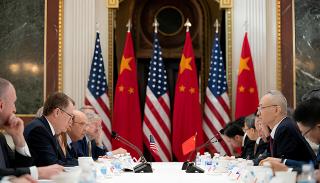
Breadcrumbs navigation
The best books to understand US-China strategic competition in a changing international order
This article was originally published by Shepherd, a book discovery website where authors and experts share their favourite books. BISA has a partnership with Shepherd to showcase our members' books and this time it's the turn of US Foreign Policy Working Group convener, Zeno Leoni. Look out for further articles by BISA members in the coming weeks. Try their bookshelf on international relations or politics to browse a wide range of recommended books.
Why am I passionate about this?
In the early days of my PhD degree at King’s College London, my research focused very much on developing a Marxist theory of International Relations. From this, I have learned invaluable knowledge that informs my post-PhD writings. These focus more on the study of US-China relations in the context of a changing world order. I have always been passionate about these subjects in so far as they allow me to make sense of the big picture.
I wrote...
A New Cold War
By Zeno Leoni
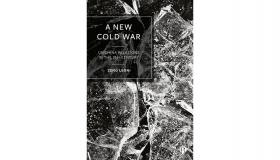
What is my book about?
The US and China appear to be locked into a relationship of forced coexistence, which has resulted in the start of a new type of cold war. This has been the case increasingly over the last decade; since the late 2000s, China has become more assertive within its geopolitical range of action while the US launched its pivot to the Indo-Pacific.
This is a new type of Cold War–rather than a Second Cold War–because in it, factors for competition and restraint coexist on multiple levels, and some are different from those of the Cold War.
The books I picked & why
Guns, Germs and Steel
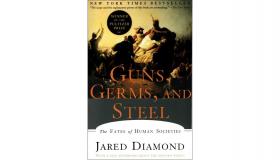
Why did I love this book?
As a student of international order, I enjoy reading history from a very long-term perspective. This book – which won the Pulitzer Prize in 1998 – offers just that by providing an overview of the origins of society and relations of power, answering big questions about why there are socio-economic differences between regions of the world, the impact of geography and nature on technological development, and the implications of human footprint on the planet.
While this book is a bit of an outlier in this list when it comes to US-China relations, it helps us think in terms of how US hegemony, like the overtake of Europe over Asia, has mostly been an accident in history—and a temporary one, as China’s rise shows.
Imperialism the Highest Stage of Capitalism

Why did I love this book?
Better than superficial realist accounts, Lenin’s pamphlet on imperialism represents the finest analysis for explaining inter-state rivalries between great powers. In this book–which deeply informed my very first monograph, American Grand Strategy from Obama to Trump: Imperialism After Bush and China’s Hegemonic Challenge (Cham: Palgrave, 2021)–he traces the origins of the start of WWI back to (profit-driven) capitalism and the inherent need for governments, intertwined with major industrial and financial combines, to open up new economic opportunities using all the tools that states have, including negotiating trade deals, territorial conquest, and war.
This pamphlet is nowadays essential for understanding why the US and China are in a strategic competition, especially when looking at how the respective governments, in cooperation with their industrial champions in the Internet sector are vying for influence.
The Lost Peace: How the West Failed to Prevent a Second Cold War
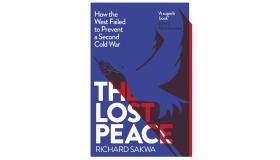
Why did I love this book?
There is a consensus among Western elites that the post-Cold War order is over and that a new order is emerging. Richard Sakwa’s book, with an intellectually rich yet accessible writing style, helps readers understand how, in only three decades–nothing in the whole history of the world and a short time from an international order perspective–we have moved from the announcement of the end of history and a new world order to the unraveling of it.
Sakwa argues that the years following the end of the Cold War did not represent a lasting accord between great powers and that the causes of these have to be found in the underlining intolerance of the West’s ideology of “democratic internationalism.”
This meant that after the Cold War there simply was a tactical pause that eventually ushered in the ‘Second Cold War’ we currently find ourselves in. Sakwa wrote a courageous account of events in so far as he challenges mainstream US-centric analyses, pointing at the Washington’s claims for a universalistic international order as the source of resentment among Russia and China.
A Fragile Relationship
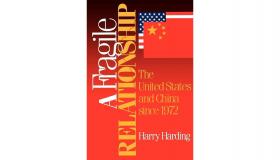
This is a must-read for all those interested in understanding US-China relations. It offers a comprehensive and objective account of the relationship from 1972–a crucial year due to the rapprochement–until after the end of the Cold War.
The author does an excellent job of capturing the main events and developing a rich narrative while maintaining an agile and accessible writing style. Although this book has been published decades ago, its key word–“fragile”–continues to capture well a relationship which has been characterised by a long series of highs and lows.
World Order
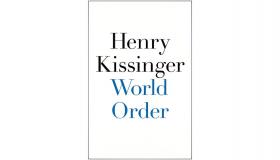
A good book should be able to convey much knowledge, in an accessible manner, but also one clear perspective. Kissinger’s book on world order – informed by the pragmatism that characterized the academic views of this controversial leader with a tainted legacy – provides that.
The main claim of the book that competing orders exist – a Chinese one, an Islamic one, a European one, etc.– should be read in Western policy circles. The war in Ukraine and the different reactions of countries from around the world compared to the G7 vindicate some of the arguments made in this book.
The US-led post-WWII order is representative of only a relatively small chunk of the world, and it needs to learn how to dialogue with other orders for the sake of global peace.
Photo by Tia Dufour for the White House via Wikimedia Commons, public domain


